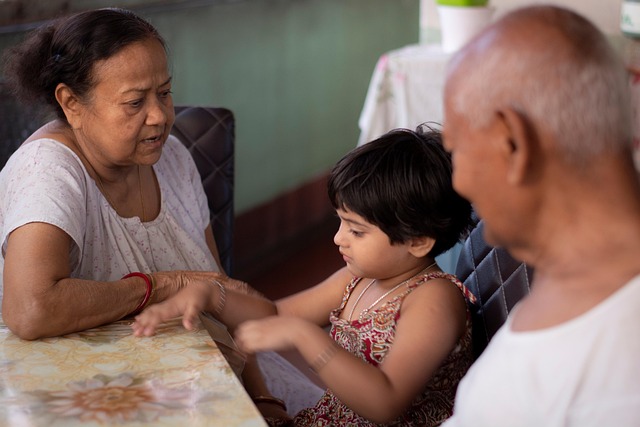Grandparent custody disputes arise when primary caregivers face challenges, leading grandparents to seek legal custody for their grandchildren's well-being. These cases balance family dynamics and legal considerations, focusing on the grandchild's best interests. Key factors include grandparent-child relationships, stability, and parental rights. Legal recognition of grandparent rights varies globally, but most countries protect access through specific laws. Court proceedings weigh the child's best interests against grandparent bonds and potential harm. Hiring specialized attorneys is crucial for navigating complex court processes, while advocacy groups offer legal aid and support networks tailored to emotional challenges.
Grandparent rights are a vital aspect of family law, especially as societal structures evolve. Understanding grandparent custody disputes is crucial for ensuring these relationships are protected. This comprehensive guide explores the legal framework surrounding grandparental rights, offering insights into navigating court proceedings and providing essential resources for grandparents seeking support. By delving into these key areas, we aim to empower grandparents to protect their bonds with their grandchildren in a complex legal landscape, focusing primarily on grandparent custody disputes.
- Understanding Grandparent Custody Disputes
- Legal Framework for Grandparental Rights
- Navigating Court Proceedings for Grandparents
- Supporting Grandparents: Resources and Advocacy
Understanding Grandparent Custody Disputes

Grandparent custody disputes often arise when a grandchild’s primary caregivers—typically parents—face unforeseen challenges, such as addiction, neglect, or unexpected legal issues. In such cases, grandparents may seek legal custody to ensure the child’s well-being and stability. These disputes can be complex, as they involve delicate family dynamics and legal considerations.
Understanding the specific circumstances that lead to grandparent custody disputes is crucial. Often, these situations require a thorough evaluation of the grandchild’s best interests, taking into account factors like the grandparents’ relationship with the child, their ability to provide a stable home, and any existing parental rights or guardianship agreements. Navigating these legal complexities requires comprehensive legal services tailored to grandparent rights issues, ensuring fair representation and outcomes for all parties involved.
Legal Framework for Grandparental Rights

The legal framework surrounding grandparent rights varies across jurisdictions, but many countries have recognized the importance of preserving familial bonds and have established specific laws to protect grandparents’ access to their grandchildren. Grandparent custody disputes often arise when a parent’s decision to limit or prevent contact between grandparents and grandchildren is challenged in court. In these cases, judges consider various factors, including the best interests of the child, the quality of the grandparent-grandchild relationship, and any history of parental decisions that may have been motivated by harm or neglect.
Laws pertaining to grandparental rights typically aim to balance the rights and responsibilities of parents with those of grandparents, ensuring that significant familial connections are not severed unnecessarily. Many legal systems allow grandparents to petition for visitation or custody rights if they can demonstrate a compelling reason and show that such arrangements are in the child’s best interests. This process often involves court proceedings where both parties present evidence and arguments, ultimately leading to a judgment that seeks to maintain a healthy balance within the family unit.
Navigating Court Proceedings for Grandparents

Navigating court proceedings for grandparents can be a complex and emotionally challenging process, especially when facing grandparent custody disputes. It requires a thorough understanding of family law and a strategic approach to present a compelling case. Grandparents seeking legal counsel should look for attorneys specializing in family law, who can guide them through the intricate steps of litigation.
These proceedings often involve extensive documentation, court appearances, and negotiations. Legal professionals play a pivotal role in helping grandparents gather essential evidence, draft legal documents, and represent their interests in court. They ensure that all aspects of the case are handled diligently, ultimately advocating for the best outcomes possible in grandparent custody disputes.
Supporting Grandparents: Resources and Advocacy

Grandparents facing grandparent custody disputes require dedicated support and resources to navigate complex legal processes. Many organizations offer specialized advocacy for grandparents’ rights, providing crucial assistance in these emotional and challenging situations. These resources can include legal aid clinics, family law professionals, and support groups tailored specifically to grandparent custody cases.
Advocacy groups play a vital role in empowering grandparents by offering guidance, educational materials, and networking opportunities. They facilitate connections between grandparents facing similar issues, fostering a sense of community and mutual support. Through these collective efforts, grandparents can gain access to legal expertise, understand their rights, and take informed steps towards resolving grandparent custody disputes effectively.














